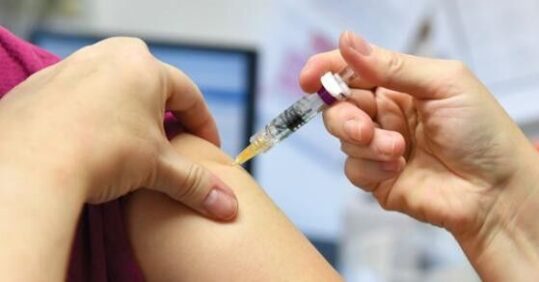Women are more adversely affected by flu vaccination than men

A new study has shown that women are more likely to suffer an adverse reaction to the seasonal flu vaccination than men.
Scientists from the University of Montreal found that women had an elevated risk of injection site reactions and systematic reactions after vaccination compared to men, regardless of age or vaccination type.
The risk of an infection site reaction could be up to 43% higher for women than men.
Related Article: Vaccination hubs and GP practices ‘rallying’ for staff after start date change
The researchers say that an understanding of the different ways people react to vaccinations could help increase trust in immunisation programmes. The findings are published in the BMJ Journal of Epidemiology and Community Health.
Influenza is a vaccine-preventable disease. Despite this, it causes illness, hospitalisation and death every year around the world. The flu vaccine helps reduce the virus’s impact, which is especially important with an active, circulating Covid-19 virus.
Sex differences are not usually considered in vaccine programmes and policies. Evidence of different reactions from men and women had been limited because the data collected after vaccination is not usually stratified by sex.
The researchers conducted a meta-analysis of 18 clinical trials which looked at outcomes of the seasonal flu vaccination and included data from 34,343 adults collected between 2010 and 2018.
The trial results were pooled and sorted into sex differences in two age groups, 18-64 years and over 65 years, enabling the researcher to differentiate reactions by sex and age.
The researchers looked at reactions at the injection site and systematic reactions within seven days of vaccination.
Related Article: Government’s new NHS winter fund overlooks primary care
Reactions included redness, pain, fever, headache and myalgia. Health outcomes were also assessed three to four weeks after immunisation and severe health outcomes were reported throughout the study.
Injection site reaction was higher in women of all ages. There was a 29% higher chance of reaction in younger women than in men, which rose to 43% in older women.
An increase in systematic reactions for all women was observed, which was 25% higher in younger women and 27% higher in older women than in men. Severe reactions to vaccinations could be twice as high for women than men. All the findings were independent of the vaccine type used.
‘Data from [randomised controlled trials] suggest that most reactions following influenza vaccinations are mild, self-limited, and rarely serious. However, as the experience of an adverse event could be a barrier for subsequent vaccinations, limiting the impact of safety concerns on vaccination programme success is critical, especially for the influenza vaccine which is needed annually,’ the researchers suggest.
Related Article: Autumn vaccines brought forward amid new Covid variant
They added: ‘Transparent communication regarding the increased risk for females would potentially help sustain long-term trust in health authorities and vaccines.’
The researchers cautioned that ‘gender attributes could influence health-seeking behaviours and individual’s experience following vaccination’, with women more likely to report health issues than men, but that ‘a better awareness of the relative roles of both sex and gender would be valuable’.

See how our symptom tool can help you make better sense of patient presentations
Click here to search a symptom

